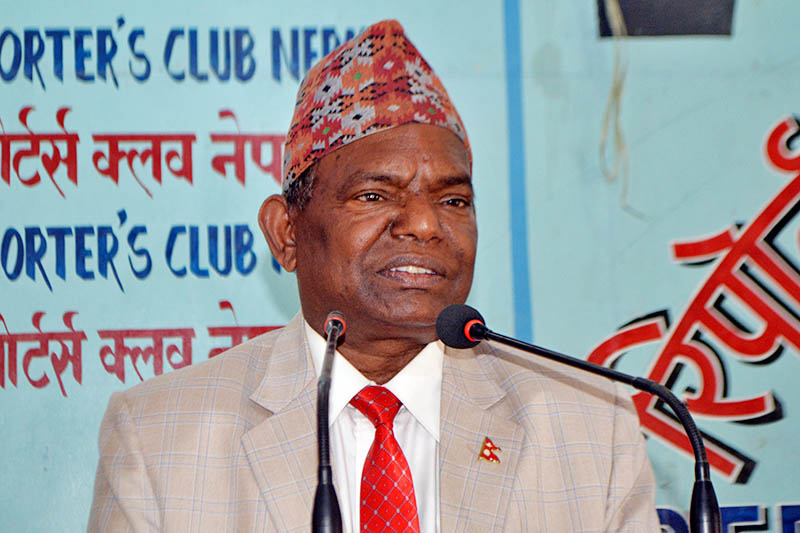Talks fail to reach conclusion
Kathmandu, November 1
Talks between agitating temporary civil servants and the government held at the Ministry of Federal Affairs and General Administration today ended inconclusively and the two sides agreed to hold another round of talks tomorrow in the presence of Minister Lal Babu Pandit and Secretary Dinesh Kumar Thapaliya.
Temporary civil servants have been staging protests, demanding automatic permanent status, additional perks and dignified exit for those laid off. Participants said today’s talks were positive as both sides agreed to adopt flexibility.
With the demand for automatic permanent status being the bone of contention, the temporary and contract staff have agreed to be flexible in their demands, while the government made some concessions, the participants said.
Kumar Raut, central vice president of All Nepal Government Temporary, Contract and Daily Wage Workers Union and coordinator of the agitation, said rigorous discussions were on their demands, but the talks failed to reach a conclusion due to the absence of the minister and secretary. “Both the sides were flexible in their stands,” he said, adding that he could not make public issues finalised until an official announcement.
Another participant of the talks, Bhola Nath Pokhrel, vice-chairman of the Nepal Civil Servants Employees Association, said today’s talks could not take a decision as some issues, such as the timeframe for the implementation of the agreement, were to be decided by the minister and secretary.
Rudra Singh Tamang, joint secretary at the ministry, said informal consultations were on how to resolve the
issue. He said a conclusion would come by tomorrow.
The government has a challenge of managing around 20,000 temporary or contract staff after the reorganisation of the bureaucracy following the adoption of federalism.
Various ministries have been merged and divisions, committees, commissions and projects have either been scrapped or have been placed under provincial governments after the formation of provincial and local governments. This had led to redundancy of posts.






